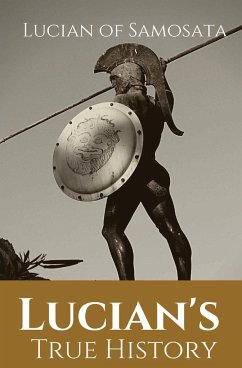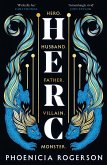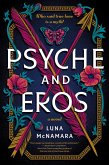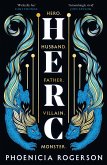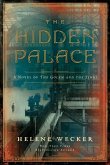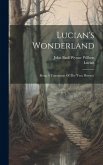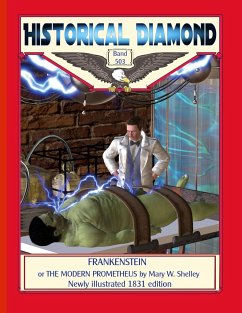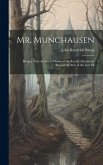A True History (Ancient Greek: ¿¿¿¿¿ ¿¿¿¿¿¿¿¿¿, Al¿th¿ di¿g¿mata; Latin: Vera Historia or Latin: Verae Historiae) is a novel written in the second century AD by Lucian of Samosata, a Greek-speaking author of Assyrian descent. The novel is a satire of outlandish tales that had been reported in ancient sources, particularly those that presented fantastic or mythical events as if they were true. It is Lucian's best-known work. It is the earliest known work of fiction to include travel to outer space, alien lifeforms, and interplanetary warfare. It has been described as "the first known text that could be called science fiction". However, the work does not fit into typical literary genres: its multilayered plot and its characters have been interpreted as belonging to science fiction, fantasy, satire or parody, and have been the subjects of scholarly debate. Example in this book : It is a commonplace of criticism that Lucian was the first of the moderns, but in truth he is near to our time because of all the ancients he is nearest to his own. With Petronius he shared the discovery that there is material for literature in the debased and various life of every day-that to the seeing eye the individual is more wonderful in colour and complexity than the severely simple abstraction of the poets. He replaced the tradition, respected of his fathers, by an observation more vivid and less pedantic than the note-book of the naturalist. He set the world in the dry light of truth, and since the vanity of mankind is a constant factor throughout the ages, there is scarce a page of Lucian's writing that wears the faded air of antiquity. His personages are as familiar to-day as they were in the second century, because, with his pitiless determination to unravel the tangled skein of human folly, he never blinded his vision to their true qualities. And the multiplicity of his interest is as fresh as his penetration. Nothing came amiss to his eager curiosity. For the first time in the history of literature (with the doubtful exception of Cicero) we encounter a writer whose ceaseless activity includes the world. While others had declared themselves poets, historians, philosophers, Lucian comes forth as a man of letters. Had he lived to-day, he would have edited a newspaper, written leading articles, and kept his name ever before the public in the magazines. For he possessed the qualities, if he avoided the defects, of the journalist. His phrase had not been worn by constant use to imbecility; his sentences were not marred by the association of commonness; his style was still his own and fit for the expression of a personal view. But he noted such types and incidents as make an immediate, if perennial, appeal, and to study him is to be convinced that literature and journalism are not necessarily divorced. The profession was new, and with the joy of the innovator Lucian was never tired of inventing new genres. Romance, criticism, satire-he mastered them all. In Toxaris and The Ass he proves with what delicacy and restraint he could handle the story. His ill-omened apprenticeship to a sculptor gave him that taste and feeling for art which he turned to so admirable an account. He was, in fact, the first of the art-critics, and he pursued the craft with an easy unconsciousness of the heritage he bequeathed to the world. True, he is silent concerning the technical practice of the Greeks; true, he leaves us in profound ignorance of the art of Zeuxis, whose secrets he might have revealed, had he been less a man of letters.
Bitte wählen Sie Ihr Anliegen aus.
Rechnungen
Retourenschein anfordern
Bestellstatus
Storno

